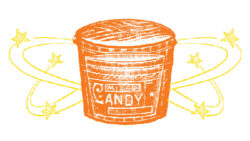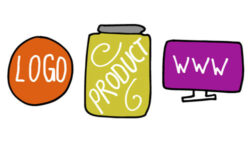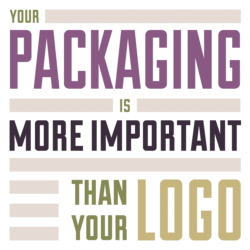You may have all the necessary elements in place for your brand, but are they working for you as effectively as possible to maximize results? Just because you have your brand touch points in place doesn’t mean they work. If you’re just sufficing with your brand communication, you are losing out on opportunity. Let’s look at the main components of your brand communication channels and how they work together.
This is the fifth article in our series, How to Build a Strong Gourmet Brand. See the full series here.
Packaging is often the first touch point. In the store, on the shelf—your product caught their eye. This is your workhorse. All your communication centers around your products. They are the focus of your brand. What do you say on your package? Only essential information should go on the front. On the back, elaborate on the product, how to use it and touch on your brand story. Be succinct throughout, keep in mind the nature of the busy consumer and how little time they have to peruse packaging when they make decisions in the store. The packaging’s purpose is to capture the sale and give them the opportunity to go further.
Remember that after the sale, the product is in the home where the consumer has more time to read through the package and appreciates the opportunity to go further. Direct them to your website for more information and compartmentalize non-essential copy on the package, for example by putting it on the side panels. In the store they can see this as nonessential copy, scan it and go back later when they have more time to read through fully. (Related: How to Create a Successful Package Design That Sells, Keys to Effective Packaging Design.)
Website. This is where people go to learn more, to go more in-depth, to peruse your full product selection, to learn more about your brand, the people behind the brand, the what, the who and the why. Here is where they really start to connect with your story. They can see your full deal here. Everything you have to offer, everything you have to say—in stages though, do not overwhelm. Top-level is the most essential information and, through secondary levels, they can go deeper. (Related: Website Dos and Don’ts for a Gourmet Brand.)
Supporting materials. These may be: catalog, brochure, sales sheets, trade show graphics, etc. Determine what your brand’s supporting needs are then develop these to do just that—support your brand. These materials reinforce all the other communication channels. They also give credibility in a time where print is often overlooked in favor of digital. But choose wisely—don’t print just for the sake of print. Find the need then develop killer materials to fill that need. (Related: How to Achieve Brand Consistency Across All Channels—for Gourmet & Specialty Brands.)
Social media. Develop a following and cultivate your tribe. Keep your followers engaged with new ideas and usage tips. Share things that excite you. Put your brand out there and personalize it. This is where your brand story can really come to life and be active. Experiment and see what attracts and delights your followers and what doesn’t. Keep honing as you go.
Each of these communication channels needs to stand on its own as well as work within the ecosystem of your other brand channels. Each one makes the others stronger. To the consumer, your entire communication system presents a strong brand and makes an impact both consciously and subconsciously—when done effectively. Strategic branding keeps your audience engaged, keeps attracting new followers and becomes the cycle that keeps propelling your brand forward.





